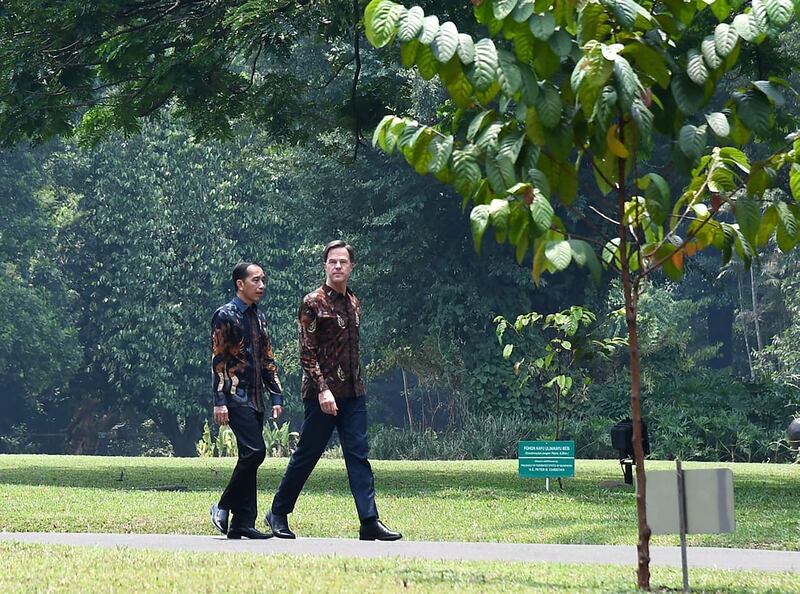Indonesia’s president on Thursday welcomed the Netherlands’ decision to officially acknowledge his country’s independence in August 1945, a first for the former colonial power, which previously insisted that the Southeast Asian archipelago had gained sovereignty in 1949.
Some experts said this official acknowledgement may mean the Netherlands concedes that its forces committed war crimes in Indonesia between 1945 and 1949, as the Dutch fought a war against a sovereign nation to re-establish colonial rule in the islands after Imperial Japan occupied them during World War II.
Dutch Prime Minister Mark Rutte told parliament on Wednesday that the government was acknowledging the 1945 date “fully and without reservation.” But his spokesman later told the country’s public broadcaster that the recognition had nothing to do with whether the Netherlands had waged a four-year war against an independent country.
Indonesian President Joko “Jokowi” Widodo said “It’s good, but we’ll have to see,” when asked about Rutte’s remarks.
“I’ll have to consult with the foreign minister first,” he told reporters.
“Its ramifications are widespread,” he added, likely referring to the four years of warfare before the Dutch formally transferred power on Dec. 27, 1949.
For his part, Rutte said he would consult with the Indonesian leader to reach a mutual understanding on the matter.
Indonesia had declared its independence on Aug. 17, 1945, two days after Japan agreed to surrender to the Allies in World War II, ending its occupation of what was then the Dutch East Indies.
The Netherlands, which had colonized Indonesia for more than three centuries, refused to accept the declaration and launched a series of military campaigns to reclaim its largest colony.
In 2005, then-Dutch Foreign Minister Ben Bot acknowledged the proclamation of independence on Aug. 17, 1945, albeit de facto.
The Indonesian Foreign Ministry said it followed the debate in the Dutch parliament.
“But we have nothing to announce yet,” ministry spokesman Teuku Faizasyah told BenarNews. “We are still waiting for input from the Indonesian embassy in The Hague.”
‘Structural, excessive violence’
Chandra Halim, who teaches history at Sanata Dharma University in Yogyakarta, said the Dutch recognition of the Aug. 17 independence date was an extraordinary concession.
He said that the Netherlands should pay compensation for what he called “war crimes” committed between 1945 and 1949.
“They would also face sanctions under international law, because when a country is guilty of war crimes, they should pay more than just compensation,” he said.
The two countries should hold talks on how to address the damage inflicted on Indonesia, “both materially and morally,” he said.

Prime Minister Rutte’s remarks came as the Dutch parliament debated a report by three respected research institutes, including the NIOD Institute for War, Holocaust and Genocide Studies.
The report, released last year, concluded that there was “structural, excessive violence” on the Dutch side during a campaign to re-occupy the Indonesian islands after the Southeast Asian nation proclaimed its independence in 1945.
The report, which several right-wing parties have called “one-sided,” documented cases of villages being burned, people being tortured and summarily executed.
Additionally, the Royal Netherlands East Indies Army waged violent anti-insurgency operations that led to killings and summary executions in South Sulawesi and West Java between 1946 and 1947, the report said.
Historians estimate the deaths in the South Sulawesi massacre vary from 1,500 to 40,000, while authorities said almost 500 people were killed in the West Java village of Rawagede alone.
In 2013, the Dutch government for the first time issued a general apology for the mass killings carried out by its troops in Indonesia.
It has also offered compensation to some of the victims and their relatives, and supported initiatives to preserve the historical memory and promote dialogue between the two countries.
